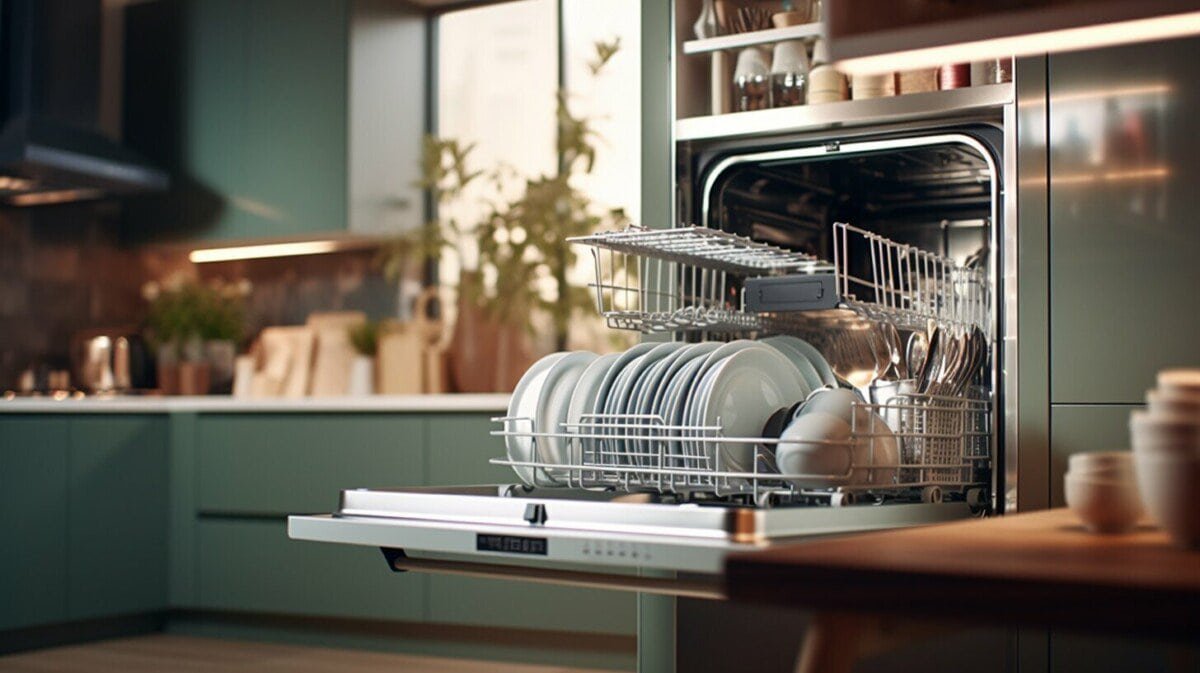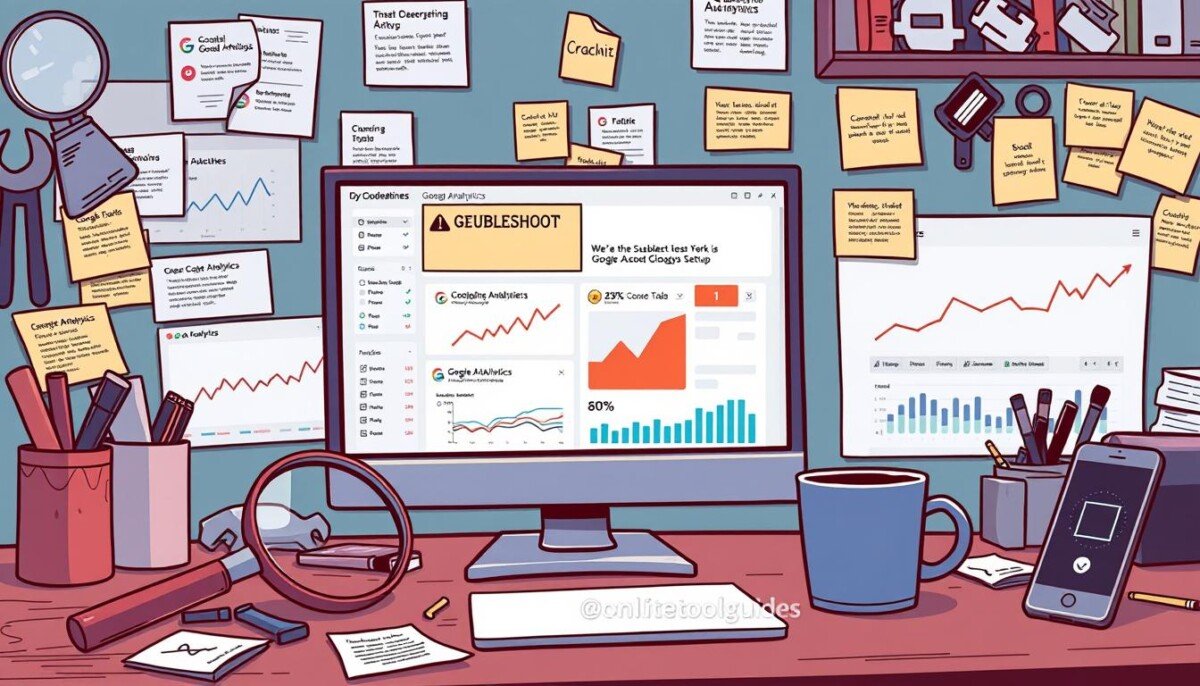Read on to discover our top tips for troubleshooting Bosch dishwashers, including step-by-step instructions for DIY repairs and maintenance. With our help, you can get your dishwasher back up and running in no time, without having to spend a fortune on professional services. Let’s get started!
Common Issues with Bosch Dishwashers
If you own a Bosch dishwasher, you may encounter some common issues over time. These issues can impact the dishwasher’s performance and can be frustrating to deal with. Here are some of the most common issues with Bosch dishwashers and what you can do to fix them:
Poor Cleaning Performance
If your dishes aren’t coming out clean after a normal wash cycle, there are a few things you can check. First, make sure you’re using the right amount of dishwasher detergent for your dishwasher model. Excess detergent can leave behind residue on your dishes. Second, check if the dishwasher spray arms are clogged or not spinning properly. You can clean them with hot water and vinegar or replace them if necessary.
Leaks
If you notice water pooling around your dishwasher or leaking out of the door, you may have a leak. Check the dishwasher door gasket for any cracks or damage and replace it if necessary. Also, check the dishwasher tub and spray arms for any cracks or damage that can cause leaks. If you’re unsure about how to replace the gasket or any damaged parts, you may want to consult a professional.
Electrical Faults
If your Bosch dishwasher won’t turn on, it could be an electrical fault. Check if the dishwasher is properly plugged in and the circuit breaker hasn’t tripped. If that’s not the issue, you may need to replace the dishwasher’s control panel or electronic control board.
By addressing these common issues, you can keep your Bosch dishwasher running smoothly and ensure clean dishes every time.
Bosch Dishwasher Error Codes
If you’re experiencing problems with your Bosch dishwasher, one of the first things to do is check for error codes. These codes can help you to identify the specific issue that is affecting your dishwasher and take the appropriate steps to resolve it.
Here are some of the most common Bosch dishwasher error codes:
| Error Code | Description | Possible Solutions |
|---|---|---|
| E01 | The dishwasher has a water filling issue. | Check the water supply, ensure the water inlet valve is working properly, and check the water pressure. |
| E09 | The dishwasher has a heating issue. | Check the wiring, thermostat, and heating element of the dishwasher. |
| E15 | The dishwasher has a leak in the base. | Turn off the dishwasher and unplug it from the power supply, then check the base of the dishwasher for leaks. Dry up any water, then reset the appliance. |
If you’re still experiencing problems after attempting to troubleshoot using the error code, consider seeking professional help. Bosch offers a range of support options, including online troubleshooting guides and customer service hotlines, to help you get your dishwasher back up and running.
DIY Bosch Dishwasher Repairs
While it’s always advisable to seek professional help for complex dishwasher repairs, there are several common issues that homeowners can address on their own. Not only can these DIY repairs save you money, but they can also help you avoid long wait times for a repair technician.
Before tackling any repairs, make sure to disconnect the dishwasher from its power source and turn off the water supply. Additionally, refer to the dishwasher’s user manual for guidance on specific repairs.
Cleaning the Spray Arms
If you notice that your dishes aren’t being cleaned thoroughly, the spray arms might be clogged with debris. To clean them, remove the spray arms from the dishwasher and soak them in warm, soapy water for 30 minutes. Once they’re clean, reattach them to the dishwasher and test the cleaning performance.
Fixing a Clogged Drain
If water is pooling at the bottom of the dishwasher, it might be due to a clogged drain. First, remove the dishwasher’s lower rack and remove any visible debris from the drain. Then, use a plunger to try and dislodge any remaining blockages. If the drain is still clogged, you may need to remove the drain hose and clean it out manually.
Replacing the Dish Rack
If the dishwasher’s dish rack is broken or damaged, it can be easily replaced. Simply remove the old dish rack by sliding it out of the dishwasher and inserting the new one in its place. Make sure to keep the old dish rack in case it can be repaired in the future.
By following these simple steps, you can tackle common Bosch dishwasher issues and avoid the need for a repair technician. However, if you encounter a problem that you’re unsure how to fix, don’t hesitate to seek professional assistance.
Troubleshooting Guide for Bosch Dishwasher
Bosch dishwashers are an essential part of modern kitchens, and they need to be in optimal condition to do their job properly. When issues arise, it’s important to troubleshoot the problem as soon as possible to avoid further damage.
Follow these steps to troubleshoot common issues with Bosch dishwashers:
- Check the power supply: If the dishwasher doesn’t start or stops mid-cycle, check the power source. Make sure the dishwasher is plugged in and the circuit breaker hasn’t tripped.
- Check the water supply: Make sure the water supply valve is open and the water pressure is sufficient. Also, check the water inlet valve and ensure it’s not clogged or damaged.
- Clean the filter: A clogged filter can cause poor cleaning performance and other issues. Remove the filter and clean it thoroughly.
- Check the spray arms: Make sure the spray arms are not clogged, cracked or damaged. If necessary, clean and replace them.
- Inspect the dishwasher tub and door seal: Make sure there are no cracks or tears in the tub or door seal. If there are, replace them.
- Run a vinegar cycle: To clean the dishwasher and remove any hard water deposits, run a vinegar cycle. Pour a cup of vinegar into the bottom of the dishwasher and run it on the hottest cycle.
- Reset the dishwasher: If the dishwasher is not working properly, try resetting it. Turn off the power source and wait for a few minutes before turning it back on.
By following these troubleshooting steps, you can identify and resolve most common issues with your Bosch dishwasher. If you’re still experiencing problems, refer to the manufacturer’s manual or call a professional for assistance.
Bosch Dishwasher Not Working
If your Bosch dishwasher suddenly stops working, it can be frustrating and stressful. However, there are several potential solutions that you can try before calling a professional repair service.
First, make sure that the dishwasher is properly connected to a power source and that the circuit breaker has not tripped. If the dishwasher is still not working, turn it off and unplug it for a few minutes. Then, plug it back in and turn it on to see if this resolves the issue.
If the dishwasher still does not work, check the water supply and ensure that the valve is fully open. If the water supply is not the issue, check the drain hose and make sure it is not clogged or blocked. If the drain hose is the issue, clear the blockage.
Common Issues and Solutions
| Issue | Solution |
|---|---|
| Dishwasher not filling with water | Check the water supply and ensure that the valve is fully open. Verify that the float switch is not stuck. |
| Dishwasher not draining | Check the drain hose and clear any blockages. Verify that the pump and motor are working properly. |
| Dishwasher not cleaning dishes | Clean the spray arms and check for blockages. Ensure that the water temperature is hot enough. |
If none of these solutions resolve the issue, it may be necessary to call a professional repair service. However, attempting these troubleshooting steps first can save time and money in many cases.
Fixing Common Bosch Dishwasher Problems
If you’re experiencing issues with your Bosch dishwasher, there are a few common problems that you may be able to fix yourself. Here are some tips for addressing some of the most frequent issues:
Clogged Drains
If your dishwasher isn’t draining water properly, it may be due to a clogged drain. Start by checking the drain basket and filter for any debris that may be causing the blockage. If you find any, remove it and test the dishwasher to see if the issue is resolved. If the problem persists, check the drain hose and clean it out if needed. If you’re still experiencing problems, there may be an issue with the pump or motor, and you may need the help of a professional.
Broken Spray Arms
The spray arms in your dishwasher distribute water to clean your dishes. If one or both of them are broken, you may notice that your dishes aren’t getting clean or that the dishwasher is making odd noises. Start by removing the spray arms to check for any damage or blockages. If there’s no visible damage, clean the arms and reattach them to the dishwasher. If the arms are broken, you’ll need to replace them.
Malfunctioning Motors
A malfunctioning motor can cause a variety of issues with your dishwasher, including poor cleaning performance and strange noises. Start by checking the motor’s connections and wiring to ensure that everything is functioning properly. If it appears to be a wiring issue, you may be able to fix it yourself. If the motor is damaged, you’ll likely need to call in a professional for repairs or replacement.
Leaking Dishwasher
If your dishwasher is leaking water, the first step is to determine where the leak is coming from. Check the door gasket for any damage or debris and ensure that it’s securely in place. If the issue persists, check the dishwasher’s hoses and connections for any leaks or damage. If you’re unable to identify the source of the leak, you may need to call in a professional for further assistance.
By following these tips, you may be able to avoid costly repairs and keep your Bosch dishwasher in optimal condition.
Best Practices for Maintaining a Bosch Dishwasher
Maintaining a Bosch dishwasher is essential to ensure it lasts for years and works at its best. Here are some best practices to keep in mind:
| Practice | Description |
|---|---|
| Regular cleaning | Clean the dishwasher filter regularly to avoid clogs and ensure the dishwasher runs smoothly. Wipe down the interior of the dishwasher with a damp cloth to remove any food particles, soap scum, or hard water buildup. |
| Run hot water | Before starting the dishwasher, run hot water in the sink to ensure the water entering the dishwasher is already hot. This can help improve cleaning performance and prevent stains on dishes. |
| Use the right detergent | Bosch dishwashers require a specific type of detergent. Look for detergents that are labeled as “Bosch approved” or “recommended for Bosch dishwashers.” Using the wrong type of detergent can lead to poor cleaning performance and may even damage the dishwasher. |
| Don’t overload the dishwasher | Overloading the dishwasher can lead to poor cleaning performance and may even damage the dishwasher. Be sure to follow the manufacturer’s recommendations for loading the dishwasher, and avoid packing dishes too tightly. |
| Check for leaks | Regularly check for leaks around the dishwasher and under the sink. Addressing leaks promptly can prevent water damage and keep the dishwasher working properly. |
By following these best practices, you can help ensure that your Bosch dishwasher works effectively and efficiently for years to come.
Replacing Parts on a Bosch Dishwasher
If you’re experiencing issues with your Bosch dishwasher, it may be necessary to replace one or more parts to get it working properly again. Here are some tips and guidelines for replacing parts on your dishwasher:
Identify the problem part
The first step in replacing a part is to identify which part is causing the issue. This may require some troubleshooting to determine, but once you know which part is faulty, you can order a replacement.
Ordering the replacement part
When ordering a replacement part for your Bosch dishwasher, it’s important to make sure you order the correct part for your model. You’ll need the model number and serial number for your dishwasher, which can typically be found on a sticker on the inside of the dishwasher door.
You can order replacement parts from an authorized Bosch parts dealer or online. Make sure you order the right part number and check the return policy in case you receive the wrong part or the part is defective.
Replacing the part
Replacing a part on your Bosch dishwasher can be a simple task, but it’s important to take safety precautions and follow instructions carefully. Make sure the dishwasher is turned off and unplugged before attempting any repairs.
Refer to your dishwasher’s user manual for detailed instructions on how to replace specific parts. You can also find instructional videos online for common repairs. Make sure you have the necessary tools and follow all safety guidelines.
Hiring a professional
If you’re uncomfortable with replacing parts on your Bosch dishwasher, or if the repair requires advanced knowledge and tools, it may be best to hire a professional technician. A qualified technician can diagnose the issue and replace the part safely and effectively.
While hiring a professional can be more expensive, it can also ensure that the repair is done correctly and prevent further damage to your dishwasher.
Can I Use the Troubleshooting Tips for a Brother Printer on My Bosch Dishwasher?
Yes, you can certainly try applying the expert tips for troubleshooting brother printer to your Bosch dishwasher. While the two appliances have different functions, some general principles may overlap. It’s worth attempting common techniques such as checking for loose connections, performing a power cycle, or consulting the user manual. However, it’s crucial to always prioritize the specific troubleshooting guides provided by Bosch for your dishwasher.
Troubleshooting Bosch Dishwasher FAQs
As a Bosch dishwasher owner, it’s common to encounter a range of issues that require troubleshooting. Here are some frequently asked questions about Bosch dishwasher troubleshooting, along with expert answers and solutions.
Q: Why won’t my dishwasher start?
A: If your Bosch dishwasher won’t start, there are a few things to check. First, make sure that the dishwasher is properly plugged in and that the circuit breaker hasn’t tripped. If those are both working, you may need to check the door latch switch or the control panel. If you’re not comfortable troubleshooting these issues yourself, it’s best to call in a professional.
Q: Why is my Bosch dishwasher not cleaning properly?
A: Poor cleaning performance can be caused by a range of issues, including clogged spray arms, a malfunctioning pump, or a dirty filter. Start by checking these areas and cleaning them as necessary. If that doesn’t help, you may need to check the water inlet valve or the detergent dispenser.
Q: How can I fix a leaky Bosch dishwasher?
A: A leaking Bosch dishwasher can be caused by a range of issues, including a faulty door gasket, a damaged water inlet valve, or a loose hose connection. Start by checking these areas and tightening or replacing any damaged parts. If the leak persists, it’s best to call in a professional for further assistance.
Q: Why does my Bosch dishwasher keep beeping?
A: If your Bosch dishwasher is beeping, it may be trying to alert you to an error code. Check the display for any error messages and refer to your user manual for troubleshooting steps. If you’re not sure what the error code means or how to fix it, it’s best to call in a professional for assistance.
Q: How do I clean my Bosch dishwasher?
A: Regular cleaning is essential for the proper functioning of your Bosch dishwasher. Start by wiping down the interior with a damp cloth and cleaning the filter regularly. You can also run a cycle with a dishwasher cleaner to remove any buildup or residue.
Q: How do I replace the spray arm on my Bosch dishwasher?
A: To replace the spray arm on your Bosch dishwasher, start by removing the lower rack and unscrewing the old spray arm. Then, insert the new spray arm and screw it into place. Check that it rotates freely and test the dishwasher to ensure it’s functioning properly.
By following these troubleshooting tips and solutions for common Bosch dishwasher issues, you can keep your dishwasher running smoothly and avoid costly repairs. If you’re not comfortable troubleshooting these issues on your own, it’s always best to call in a professional for assistance.



![Is the [WAH Program] a Scam or a Legit Work from Home Business?](https://onlinetoolguides.com/wp-content/uploads/2021/04/WAH-SCAM-Feature-Image.jpg)